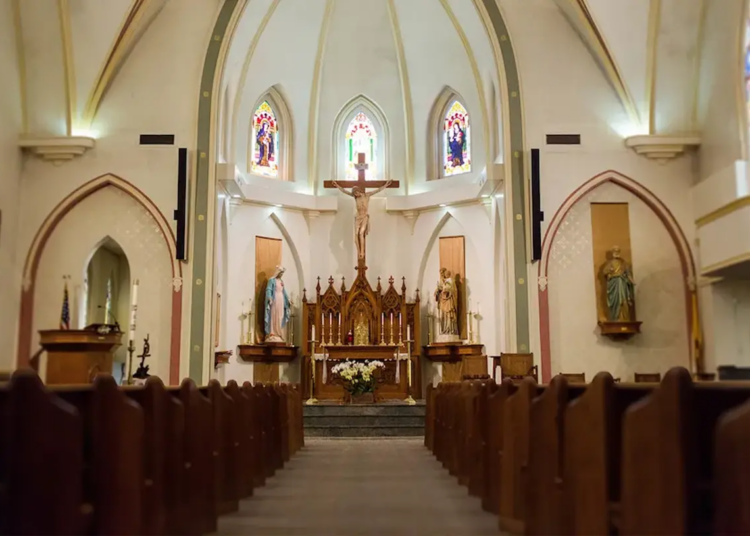It is a common saying that the Catholic marriage may not be working, but it hardly breaks up. Some mischievous Nigerian politicians, in an effort to rationalise their shenanigans that have continued to hold the country hostage, claim that the country is like a Catholic marriage which though not working as it should finds a way not to break up.
But we have bad news for those self-serving politicians, intent on exploiting the gullibility of the rest of us and ridding roughshod on the sensibilities of the majority who are less privileged, that the day of reckoning is here. Pope Francis has made certain, since August 15, 2015, in one of his Apostolic letters, that Catholic marriage, like any other human institution, can crack under pressure.
This is the subject of a paper presented at the inauguration of the Judicial Year of the Catholic Archdiocese of Abuja by the Judicial Vicar, Reverend Father Christopher Nnubia. Titled “A Juridical -Pastoral Service for Abuja Archdiocesan Judicial System in The Light of The Reformed Marriage Processes of Pope Francis”, the paper went through the stages and, of course, procedures that must be followed in the course of remedying a defective marriage.
Before this reform, for any Catholic marriage to receive the stamp of nullity, the Supreme Pontiff himself must be part of the process. He is usually the final authority. But that process, which usually goes up to the Vatican, has been simplified by the Pope to the point that it can now begin and end within the Archdiocesan Curia.
For most Canon Law experts, it seems a contradiction that this fundamental change that was put in place to ease the practical workings of the Sacrament of Matrimony is beginning to create unintended challenges. Some of them are genuinely alarmed at the rate couples twist and turn the marriage code in a bid to change their minds about relationships that were meant to last forever, till death do us part. But these experts are, by no means, blaming it on the moderations brought about by the papal intervention. On the contrary, the Pope accepts that marriage, first and foremost, is a human institution even if divinely inspired. To that extent, therefore, that human element must not be neglected in the implementation of such an important biblical dictate that encourages a man and woman to leave their parents and come together as one in conjugal love.
The Auxiliary Bishop of the Archdiocese of Abuja, Most Rev Anselm Umoren, who presided over the inauguration which started with the Holy Mass at St Agnes Catholic Church, Wuye, added a dimension to the discussion. He made a passionate appeal for intending couples to undergo psychological therapy before tying the nuptial knot.
In his opinion, most of them do not quite understand what they are going into, to the point that they spend all the time and resources planning for and celebrating their wedding with little time, if any, to reflect on the demands and necessities of the journey they are embarking on – married life. For these intending couples, he said, the real issue which is marriage – the coming together of two human beings in a matrimonial relationship is believed, regrettably, in his view, to be easily manageable through prayers.
Bishop Umoren admitted, obviously as a man of God, that it is very good and even essential to pray. However, he expressed worry that, in some cases, praying in a situation one can handle effectively, amounts to putting God to the test over matters that are within the reach of human effort. He raised a few eyebrows when he admonished intending couples to sort themselves out within the limits of human possibilities, by smoothening all the rough edges in their relations and levelling the valleys before walking down the aisle. It is only when this has been done, the Bishop, can prayers take over in areas that are, perceptibly, beyond human comprehension.
The gathering at the event was made up of mostly the clergy, religious and married couples. As is to be expected, it was an exciting topic that generated immense interest. The lecturer, Father Nnubia, took his time to go through the processes of bringing a Catholic marriage to a nullity. But he also warned that the completion of the tedious process may not, in the end, guarantee that the marriage will be brought to a nullity. Often, he pointed out, parties involved introduce dimensions that can and do tie the hands of the Tribunal and make the declaration sought difficult, if not, impossible.
In bringing the services of the tribunals closer to the faithful, which is the original intendment, regardless of the procedural abuses, Pope Francis, graphically, uses the Church as a field hospital and imagined the juridical-pastoral service as a battlefield in which the tribunal is an intensive care unit that applies specialized services to those who consider their marriage bond as being mortally wounded.
What this implies, in the considered opinion of this newspaper, is that a Catholic Marriage Tribunal is not an undertaker that must see to the end of a nuptial relationship. Mortally wounded, but, certainly, not dead.





